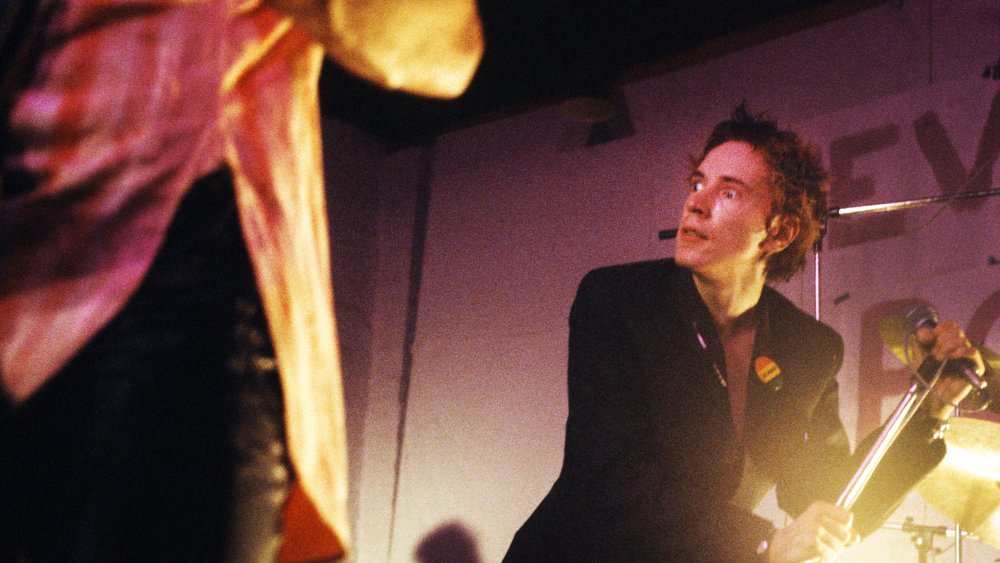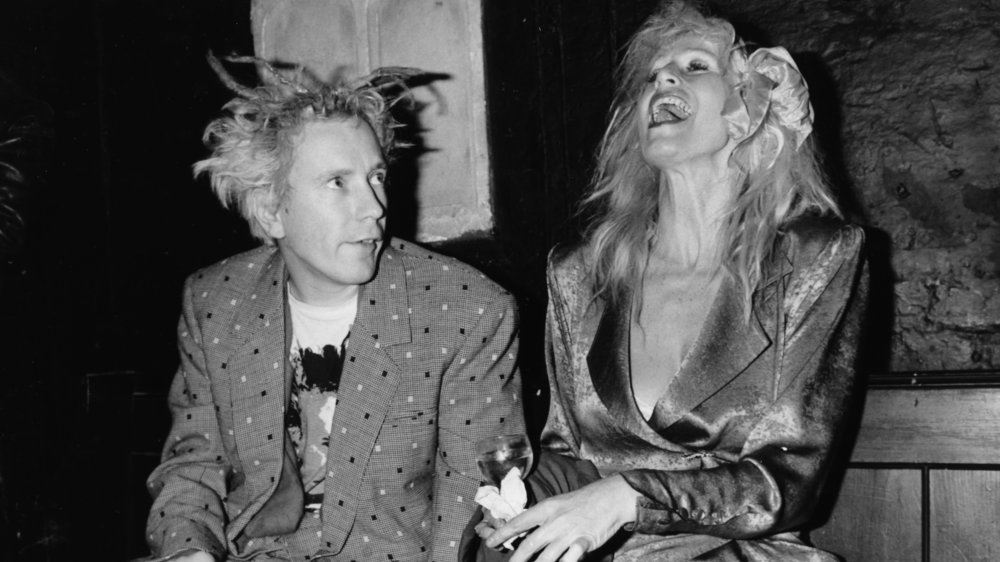The Truth About The Sex Pistols' John Lydon
"I am an anti-Christ! I am an anarchist!"
For many, the image of John Lydon –- or as he is often better known, Johnny Rotten –- will forever be tied to his opening lines on The Sex Pistols' "Anarchy In The UK," a song that was released and subsequently withdrawn from sale following an expletive-ridden and aggressive interview with the group which went out live across the South East of England, causing a media frenzy and catapulting the punk band into the national spotlight overnight.
While the Sex Pistols' influence has never been in doubt — a whole mythos has built up about the number of attendees at their famous Manchester Lesser Free Trade Hall gig who went on to form their own groups — and Lydon's second band, Public Image Ltd., has received widespread critical acclaim with some critics arguing that they were "arguably the first post-rock group," the real John Lydon is still an enigma to many.
In recent years, Lydon has made headlines most often for his strident and reactionary political opinions, his outspoken support of Brexit and the presidency of Donald Trump in particular. But while it is these points of his interviews that get the most reaction on social media -– even ardent fans have described some of his opinions as "disappointing" -– the honesty with which the punk veteran shares his inner self with the public means that redeeming insights into the personal life of this compelling and complicated character are rarely hidden from view.
John Lydon's life was shaped by childhood illness
It is a well-known fact that Lydon suffered from a life-threatening brush with meningitis when he was only seven years old. According to the Irish Times, the illness left him with a curvature of the spine, an affliction that had a part in establishing his stooped yet threatening stage presence, and permanently affected his eyesight. Lydon claims that this is the reason for his iconic stare, the result of him trying to focus properly.
But as well as these bodily effects that shaped Lydon physically to resemble the persona that a decade later would become Johnny Rotten, the illness also had a profound effect on his personality, his distrust of institutions, and his attitude towards family. Because according to Lydon, meningitis gave him severe memory loss, leaving him unable to recognize either of his parents. The Independent quotes:
"I had to believe these were my mum and dad. They were kind. They seemed to want me. The hospital did not seem to want me. I had no place else to go. But it was murderously cruel and tortuous, mostly because I thought inside it must be my fault. I must have done something wrong."
John Lydon's devotion to his wife, Nora Forster
Lydon met the love of his life in the early days of The Sex Pistols: the publishing magnate Nora Forster, who was fifteen years the singer's senior. The pair married in 1979 while Lydon was in his mid-twenties, according to Yahoo Entertainment, becoming the adoptive father of Nora's two children, including the teenage Arianna (who, under the name Ari Up, formed the influential punk group The Slits. She died of cancer in 2010, age 48).
In 1988, the couple had a brush with death when they narrowly avoided becoming victims of the Lockerbie bombing. "Nora and I were booked on that flight, but she didn't pack her case in time, so we canceled," Lydon told the Guardian. The near-miss made Lydon more conscious and attached to Nora and her safety than ever. While in Australia as a contestant on I'm a Celebrity... Get Me Out Of Here! in 2004, Lydon walked off the show when producers refused to tell him if his wife's flight had landed safely.
John Lydon is now a carer
Today, John Lydon is 64. Nora Forster is 78 and, Lydon tells the Guardian, suffering from Alzheimer's disease. Lydon provides her with round-the-clock care, but as a man who despises self-pity, and who also has ruminated on the nature of memory since his childhood battle with meningitis, the former Sex Pistol is facing this difficult stage of his and Nora's life together as he has every other: bravely, joyfully, and on his own terms. The Guardian journalist described it as the loss of his life partner. But Lydon responded:
"I haven't lost her, no, no, no. She's going through some traumas. Bits of memories are fading, slowly but surely, and will probably all be gone eventually. But I'm making sure it's a happy journey and not a sad one. She will never forget me, and I will never forget her, whatever else falls out of her earholes."
It is worth forgetting both punk and politics when reading things like this. The side of John Lydon that is most deserving of column inches today is his open and honest humanity.



